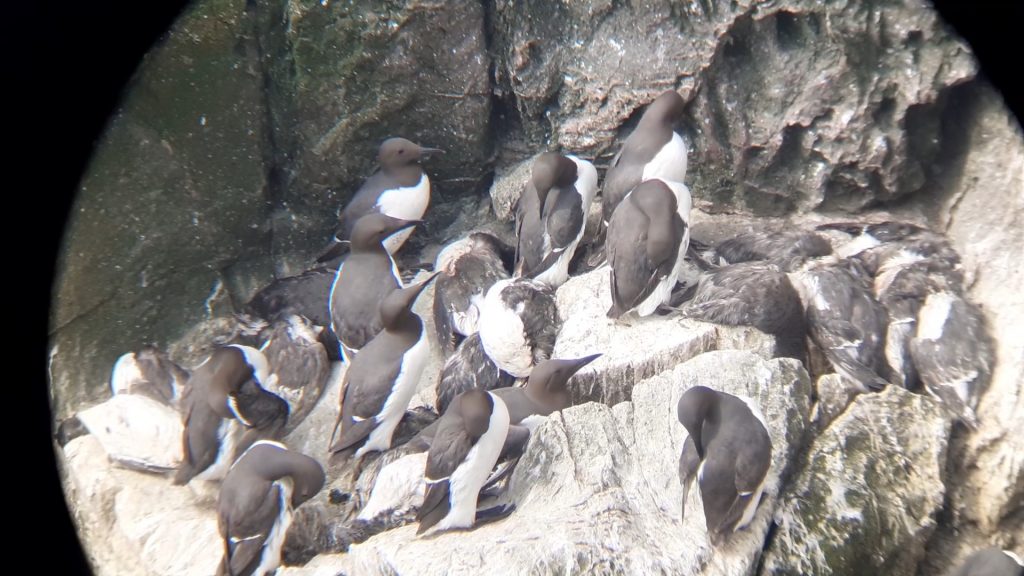- Impacts of Highly Pathogenic Avian Influenza (HPAI) on wild birds are intensifying fast in Scotland with reports of thousands of dead or dying birds
- Shetland appears to be most heavily affected, but there are increasing reports from other places around the country with many species affected
- Last year HPAI was responsible for the loss of more than one third of the Svalbard barnacle goose population that winters around the Solway estuary. Seabirds, many of which are already struggling, are likely to be harder hit as slower breeding rates could mean long-term population declines
- RSPB Scotland is calling on Scottish Government and NatureScot to urgently develop a response plan and to see this as a wake-up call that we must take action on the other threats facing our seabirds
Over the past few weeks, large numbers of dead and dying seabirds have been seen across Scotland.
Shetland appears to be the most heavily affected, but there are increasing numbers of reports from many of Scotland’s islands and coastlines. As reports increase, the number of species affected also appears to be increasing.
There have been reports of widespread deaths at great skua (bonxie) colonies in Shetland, Fair Isle, Orkney, the Western Isles, Handa, the Flannan Isles and St Kilda. As well as widespread reports of sick and dead gannets at key colonies – most notably Noss in Shetland but also Troup Head in NE Scotland, Bass Rock in the Firth of Forth and elsewhere. Scotland has 60% of the world’s population of breeding great skuas and 46% of breeding gannets.
There are also reports of high mortality in sandwich and Arctic terns and elevated numbers of dead guillemots at a colony on the Mull of Galloway.
Many people living in areas affected are facing the impacts daily, as they walk past the corpses of seabirds lying on beaches.
Stewart Bain, RSPB Scotland Communications & Events Officer in Orkney, said: “The number of dead birds along our coastlines in Orkney is heart-breaking to see and the range of affected species is causing much concern in the community. As we head into summer, more and more people will have first-hand experience of the devastation this virus is causing. There is a sense locally that people feel helpless, but there are things you can do. Safety remains paramount and you should avoid contact with any dead or dying birds, but please report them to the DEFRA helpline. This will help give a clearer picture of the situation and inform how it is dealt with. You can also try to be even more careful than normal about not disturbing nesting or birds.”
Last winter HPAI devasted numbers of barnacle geese in the Solway with estimates of a loss of more than a third of the world’s Svalbard population.
This spring, Scotland’s globally important seabird populations are now bearing the brunt and fears are that the long-term impact on these species could be much more severe.
Seabirds are long-lived, take longer to reach breeding age and tend to produce fewer offspring than geese meaning impacts of high adult mortality on future numbers could be much more significant and any recovery take far longer. Yet, seabirds already face many other significant threats and many species have suffered severe declines in numbers over recent decades.
RSPB Scotland believes that the Scottish Government must act now to both respond to the developing situation with HPAI and to ensure measures are put in place to reduce the other threats faced by Scotland’s seabirds.
Dr Paul Walton, Head of Species and Habitats for RSPB Scotland, said: “Scotland’s seabirds are already facing multiple severe pressures generated by people – climate change, prey fish shortages, invasive species brought to islands, mortality in fishing gear and poorly sited wind turbines. These populations have halved since the 1980s. Now, a highly mutable and deadly new form of avian influenza, which originated in poultry, is killing our wild seabirds in large numbers. We urge the Scottish Government and NatureScot to develop a response plan urgently – to coordinate surveillance and testing, disturbance minimisation, carcass disposal and biosecurity.
Dr Walton continued: “In the longer term, we urge much higher importance be given to prioritising and funding a national programme of seabird conservation, so we build resilience in these precious populations to the pressures that we have put them under.”
If you come across dead or sick birds, do not touch them. Instead, please report them as soon as possible to the DEFRA helpline on 03459 33 55 77.





